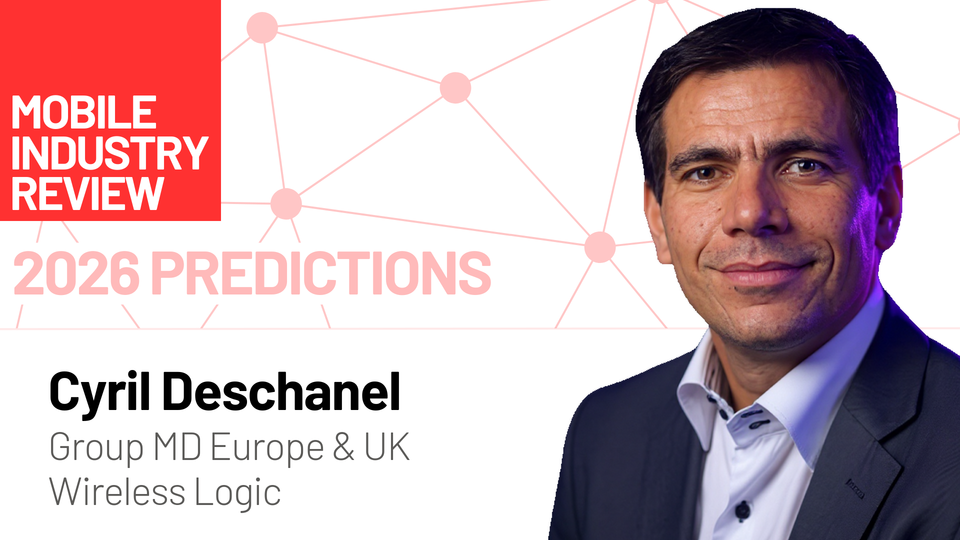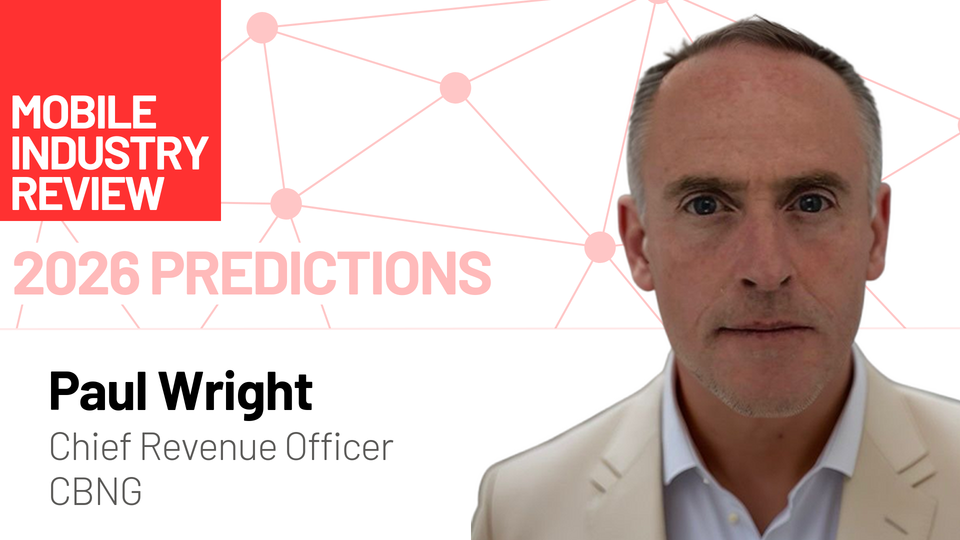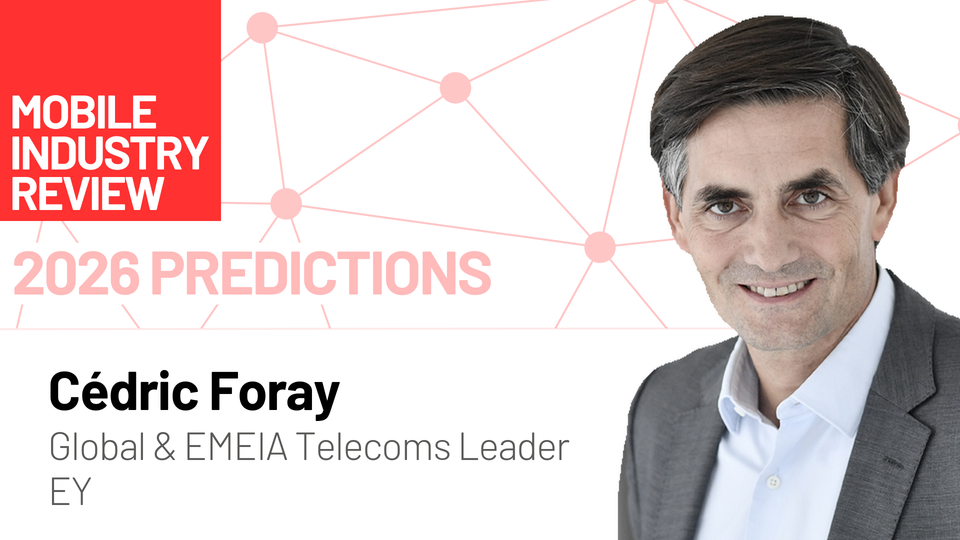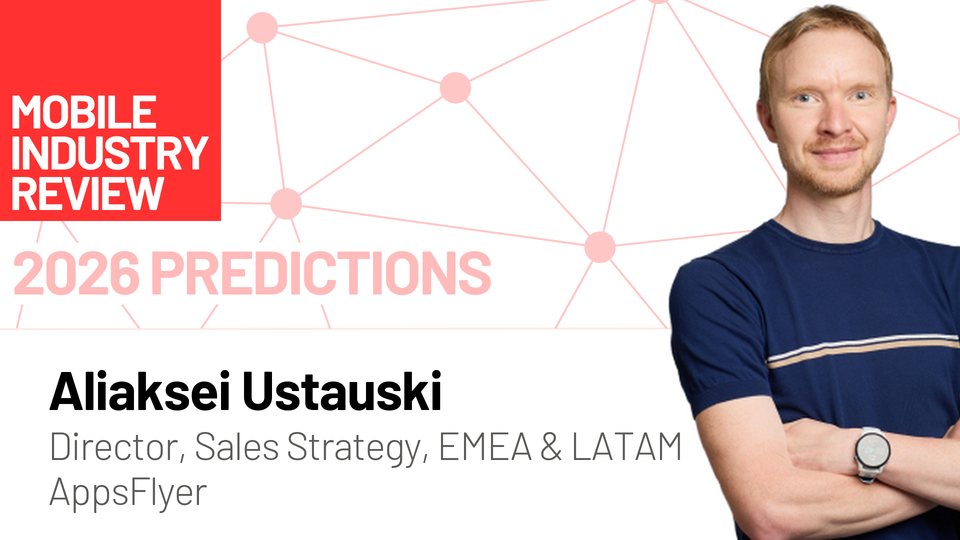Q&A Profile: Reggie Scales, President and Head of Applications, Vonage
Reggie Scales discusses AI-powered customer engagement, the convergence of UCaaS and CCaaS, and why the mobile industry must innovate or be left behind.

Today we're meeting Reggie, President and Head of Applications at Vonage. The company specialises in creating technology that empowers enterprises and equips developers to lead in the next era of digital transformation, with a portfolio including Network APIs, CPaaS, CCaaS, and UCaaS solutions.
Over to you Reggie - my questions are in bold:
Who are you and what's your background?
I lead Vonage's global Applications group, which includes our Unified Communications, Contact Centre, and Residential services portfolio. I joined Vonage in 2018, having previously held senior leadership roles at PAETEC, Comcast and Masergy Communications, bringing over 25 years of experience in the communications industry and a degree in Communications and Psychology from Salisbury University. My focus is on how communications technology can enhance business outcomes, helping organisations unlock value through more intelligent, integrated, and scalable engagement tools.
In terms of the route that led me into the industry - I played lacrosse in college, and through that experience, I connected with some upperclassmen who had graduated and started working at MCI. Their stories introduced me to the massive disruption happening in the telecommunications industry following the AT&T divestiture in the early to mid-90s. I was excited by the competitive energy and rapid innovation in the field, which inspired me to dive in. My career naturally evolved from there - starting with selling long-distance services, then expanding into local phone services, data networks, cloud computing, and now AI. It's been a natural evolution, with each step being driven by my passion for staying at the forefront of transformative technologies.
What is your job title, and what are your general responsibilities?
I'm President and Head of Applications at Vonage. In this role, I oversee Vonage's Unified Communications, Contact Centre, and Residential services. My responsibilities span across managing the teams that drive our products, engineering, sales, partnerships, and customer support. At the core of my job is ensuring that our products not only meet the evolving needs of our customers but are also intuitive and easy to adopt, whether on desktop or mobile. Additionally, I work closely with our partners to ensure they have the tools, resources, and support needed to help their customers succeed and maximise the value of our services in the market.
Can you give us an overview of your business and what drew you to lead the organisation?
Vonage creates technology that empowers enterprises and equips developers to lead in the next era of digital transformation. Our AI-powered platforms and tools enable new value creation and innovative customer experiences across mobile networks and the cloud. Vonage's portfolio includes Network APIs, CPaaS, CCaaS, and UCaaS solutions, and our technology is trusted by enterprises across industries and embraced by developers around the world.
I was with Masergy when the head of sales opportunity at Vonage caught my attention. The company was undergoing an exciting transformation, from a legacy VoIP provider to a forward-thinking contact centre and unified communications leader, leveraging AI, network APIs, and cutting-edge technologies. It felt like joining a 'billion-dollar startup' that was disrupting the industry and driving innovation in the cloud space. What really drew me in was the combination of Vonage's visionary management team and the dynamic, startup-like culture within a company of that scale. It was the perfect mix of innovation, agility, and opportunity.
Who are your target customers? What's your revenue model?
Vonage serves a diverse range of businesses globally, from large enterprises to SMEs, across various industries. Our solutions are designed to meet the evolving communication needs of businesses, whether they're looking to enhance customer engagement, streamline operations, or implement mobile-first strategies.
Our revenue model is built on flexibility to suit our customers' needs. We offer services through subscription plans, usage-based pricing, and partnerships with channel partners. These partners play a crucial role in extending our reach to different regions and industries, while also assisting customers in implementing tailored, mobile-first communication solutions.
What's the most challenging problem your team has solved recently?
We've successfully navigated some challenging market conditions by staying agile, thinking critically, and focusing our investments where they make the greatest impact. A standout recent achievement has been Vonage's role as one of the first contact centre providers to join Salesforce's pilot program as a premier provider for Service Cloud Voice.
This partnership has enabled us to deliver the ultimate omnichannel solution, setting a new standard for customer engagement. Achieving this required significant innovation and transformation, but the journey has been incredibly rewarding and has solidified our position as a leader in the space.
If you had a magic wand, what one thing would you change in the mobile industry?
I would advance the concept of remote work by making everything you can do on a computer seamlessly possible on a phone. Picture a unified platform on a single device that integrates unified communications (UC), contact centre (CC) solutions, AI, and network service capabilities. This would empower people to work effortlessly from anywhere, at any time, on any device, with all the tools they need right at their fingertips.
"Innovate or be left behind"
What is your message for the larger players in the mobile industry marketplace?
My message is simple: 'Innovate or be left behind.'
The consumer journey must be seamless, intuitive, and free of unnecessary friction. As an industry, we have a unique opportunity, and responsibility, to shape the future together. With advancements like 5G and network APIs at our disposal, we have the tools to deliver unparalleled uptime, availability, and user experiences. It's time to collaborate, push boundaries, and turn this vision into reality.
Where do you get your mobile industry news from?
I stay updated on the mobile industry through a variety of sources. Ericsson, being at the forefront of innovation in this space, is a key resource for me. Since being acquired by Ericsson, my perspective has become much more mobile-first, and I've gained valuable insights from both our customers and the wealth of expertise within the company.
Additionally, I follow industry-specific outlets like Mobile Industry Review to stay informed about the latest trends and developments. (Good man! - Ewan)
Can you list 3 people you rate from the mobile industry that we should be following on LinkedIn, and why?
There are so many inspiring leaders in the mobile industry, but here are three individuals I highly recommend following on LinkedIn for their unique perspectives and contributions:
- Börje Ekholm (CEO, Ericsson) - Börje is at the forefront of 5G innovation and its global rollout. He provides valuable insights into the future of connectivity and how mobile networks are transforming industries. His updates often highlight cutting-edge technologies and their real-world applications, making his content both informative and forward-thinking.
- Omar TAZI (EVP & Chief Product Officer at T-Mobile) - Omar is a visionary in product innovation within the mobile space. He shares really interesting perspectives on customer-centric design, digital transformation, and the evolution of mobile services. His posts often demonstrate how technology can enhance user experiences and drive business growth.
- John Stankey (Chairman and CEO at AT&T) - John shares a lot of great insights on the intersection of telecoms, media, and technology. His commentary on industry trends, such as the integration of 5G and fibre networks, are hugely valuable for understanding the broader impact of mobile technology on society.
I also follow some incredible leaders from the GSMA, the global organisation that brings the mobile ecosystem together. Their insights on industry trends, policy shifts, and how mobile technology is driving sustainable development around the world are always so inspiring.
What are your go-to mobile apps for both work and personal use?
I couldn't get through my day without the Vonage Business Communications (VBC) mobile app - it's my go-to for staying connected. I also use WhatsApp for international messaging, Slack to keep up with my team, and Chat AI when I need quick ideas or insights. The Vonage app is another favourite as it integrates seamlessly with Salesforce and other tools, making it easy to manage everything from my phone. All these apps make it simple to stay productive and connected, no matter where I am.
Tell us about your approach to mobile devices - what do you use and what drives your upgrade decisions?
I'm a big Apple fan. In fact I bought the iPhone 17 on the day of its release. I also use iPads, Macs, and AirPods. What I love most about Apple is how everything just works together seamlessly. Features like iMessage and the shared ecosystem make it so easy to stay connected across all my devices. When it comes to upgrades, I look for things that enhance collaboration, and, of course, maintain the highest security standards. Those are the things that really drive my decisions.
What's the best new mobile technology product or service you've seen recently?
AI tools have been really exciting to watch, they're changing the game in so many ways. I'm also really intrigued by Meta glasses and the potential they have to integrate with mobile devices. And then there are products like Sonos, which continue to impress me with their innovation. There's just so much happening in the tech space right now, and I'm always curious to see how these technologies evolve and shape the way we live and work.
Finally, let's talk predictions. What trends do you think are going to define the next few years in the mobile industry?
AI-powered customer interactions: AI will continue to revolutionise how businesses engage with customers. From chatbots to predictive analytics, companies will leverage these tools to deliver hyper-personalised, efficient, and seamless customer experiences. AI will also play a significant role in automating routine tasks, allowing human agents to focus on more complex interactions.
Intelligent business automation: Businesses will begin to lean on IBA to anticipate customer needs across billing, support and service upgrades, which will require strong data privacy safeguards and close integration with existing systems.
Integration of UCaaS and CCaaS: The convergence of UCaaS and CCaaS will gain momentum. Businesses will seek integrated solutions that combine collaboration tools with advanced contact centre capabilities, enabling better internal and external communication.
5G and IoT integration: The rollout of 5G networks will unlock new possibilities for real-time communication and data transfer. This will enhance the performance of mobile applications, video conferencing, and IoT-enabled devices, creating new opportunities for innovation in customer engagement.
Thank you Reggie! Connect with Reggie on LinkedIn and read more about Vonage at their website.



